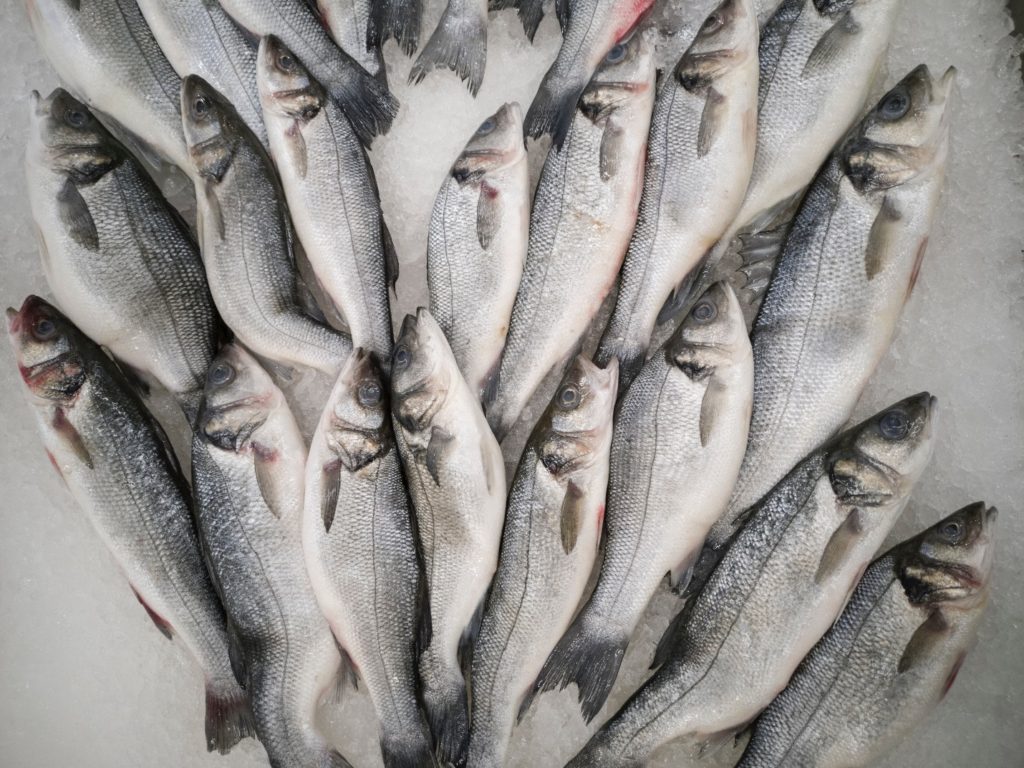Mackerels are a unique species of fish that come with a lot of interesting facts. They are quite common, so there’s quite a bit of a chance that you’ve had it before and even realized it! This fish has a remarkable nutty taste, which is available almost everywhere and the best news? Eating it comes with a lot of health benefits!
If you’re curious, have questions, or are interested in discovering unique and fascinating facts about mackerels, keep on reading!
Facts About Mackerel
1. Mackerels are diurnal animals
Diurnal identifies animal species primarily active during the day, who perform all significant life habits, including courtship, breeding, feeding, preening, and other customs. Most bird species like songbirds, hummingbirds, and waterfowl are also diurnal along with the mackerel.
An average mackerel’s day looks like this: A Diel vertical migration is conducted by adult snake mackerel, remaining in shallow water throughout the day and rising to the surface at night to feed. Vertically, though in the same direction, the young also migrate, remaining near the body throughout the day and heading deeper at night.
2. Mackerels are carnivores
It is proven that they eat other small fish because of how sharp their teeth are. Their diet consists of copepods, small fish, shrimps, and squids.
They also like feeding on trout, squid, and shrimp, especially the king mackerel. They’re voracious feeders and have been observed in search of prey jumping out of the water. In return, smaller king mackerel are often eaten by larger pelagic fish.
3. There are over 30 species of mackerel
Mackerels are divided into three categories:
• True Mackerels
Which are further divided into
• Island mackerel
• Indian mackerel
• Blue mackerel
• Spanish Mackerels
Which are further divided into
• Double-lined mackerel
• Serra Spanish mackerel
• King mackerel
• A few more Mackerels
• Gempylidae Snake mackerel
• Carangidae Jack mackerel
which are further subdivided into various categories.
A description from Fishing Booker labels them as “It’s more enjoyable to catch Spanish Mackerels,” while “real Mackerels” taste stronger.
4. Amazing health benefits of mackerel (lean meat)
-
It regulates your hormones and makes it more robust for blood vessels and capillaries.
-
By reducing coagulation in the blood, mackerel prevents cholesterol accumulation.
-
Fish also tend to reduce poor cholesterol (LDL) and lower blood pressure.
-
Mackerel helps to alleviate migraine pain, arthrosis, and arthritis. It also increases the function of the brain and, thus, enhances memory.
-
Fish is rich in heart-healthy omega-3 fatty acids that can help protect the heart, reduce inflammation, and stave off chronic disease.
-
Mackerel aims to suppress cancer-causing factors in the tissues, thus reducing the risk of multiple cancers.
-
It prevents coronary diseases, enhances the immune system, boosts disease-weakened organ functions, and influences metabolism.
-
To boost vision and eye protection, omega-3 fatty acids are beneficial.
-
A high intake of seafood has been related to a reduced risk of Alzheimer’s disease. Studies have shown that there was more grey brain tissue in people who eat fish daily, which decreases brain shrinkage and degradation, leading to brain function problems.
-
If used with a selective serotonin reuptake inhibitor (SSRI), a form of antidepressant, fish oil may help relieve the symptoms of depression.
-
It helps to sleep because of the fish’s high vitamin D concentration.
Read our interesting recipes: How to Make Mackerel Stew.

5. Mackerels are found everywhere
The waters off North America’s east coast are inhabited by the Atlantic Spanish mackerel from the Cape Cod region south to the Yucatan peninsula.
A coastal fish found only in the northern Atlantic is the Atlantic mackerel. The Eastern Atlantic stock exists as three separate stocks, the Southern, Western, and North Sea stocks, each with its migration patterns.
The chub mackerel is absent from the Atlantic Ocean but is expected in the Pacific, where its migration patterns are similar to those of the Atlantic mackerel, in both hemispheres.
From Western Australia to Chile and Peru’s coasts in the South Pacific, the most strongly collected mackerel-like fish, the Chilean jack mackerel, is known. A related genus, the Pacific jack mackerel, is found in the North Pacific.
The Australasian, Chilean, and Pacific Jack mackerels are three different jack mackerels present in coastal waters around New Zealand.
6. Mackerel commercial fishing is a big deal
In the UK, mackerel fishing is prevalent, especially around piers, harbors, and jetties that provide easy access to deep water and the tidal run abundant with mackerel.
Western Australia’s mackerel fishery stretches from West Coast Bioregion to the Northern Territory border, with the highest proportion of catches collected in the North Coast Bioregion.
In coastal areas, commercial fishers pursue Spanish mackerel. They run from small ferries (baited fishing lines) and tow near-surface trolling gear. Often, a much smaller number of grey mackerel and other mackerel species are captured using jig fishing (line fishing with a lure form).
Gascoyne/West Coast, Kimberley, and Pilbara catch in the WA mackerel fishery are conveyed independently.
The king mackerel is an important species for the recreational and commercial fishing industries, as it is one of the most primary game fish, primarily known for its pace. A migratory animal from the western Atlantic Ocean and the Gulf of Mexico is the Kingfish or King Mackerel.
7. They come with a health issue!
Mackerel should not be eaten by pregnant women daily. Otherwise, it damages the developing nervous system of an infant and even poses a risk to mothers. Also, it contains methyl mercury, so it should be avoided by pregnant women and by nursing mothers at all costs.
The mackerel flesh spoils rapidly, particularly in the tropics, and can cause food poisoning from scombroids. Ideally, it should be ingested on the day of capture, unless correctly refrigerated or cured.

Those were the seven interesting facts about mackerels. Hopefully, this answered many of your questions about mackerels, and you found it an exciting read! If you are interested in delicious Mackerel soup then Must read: How to make healthy mackerel soup.





Leave A Comment